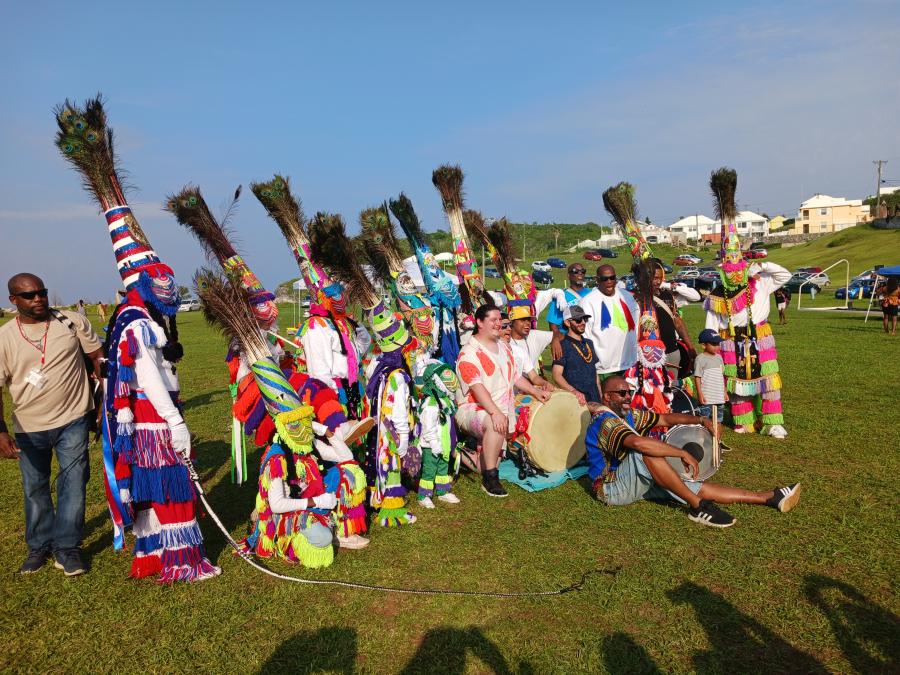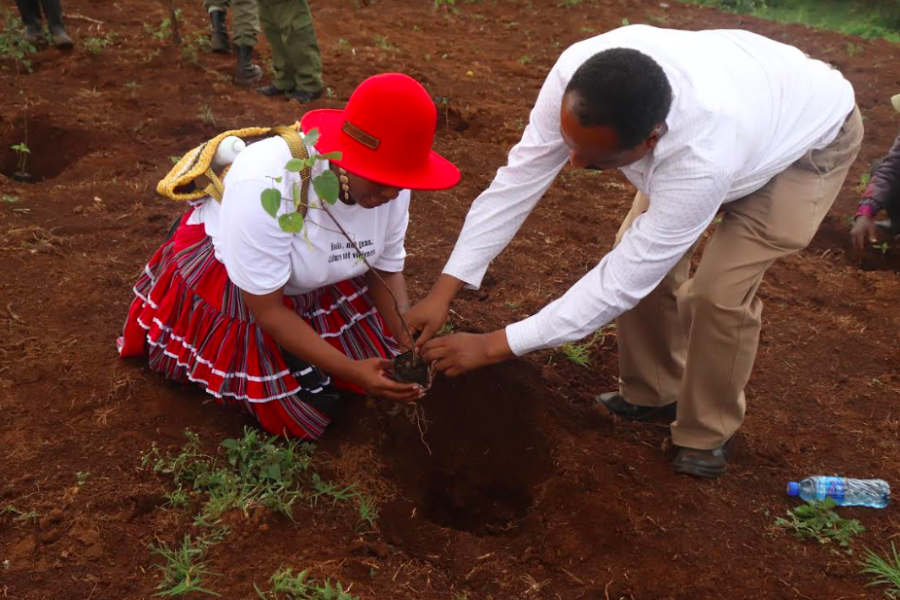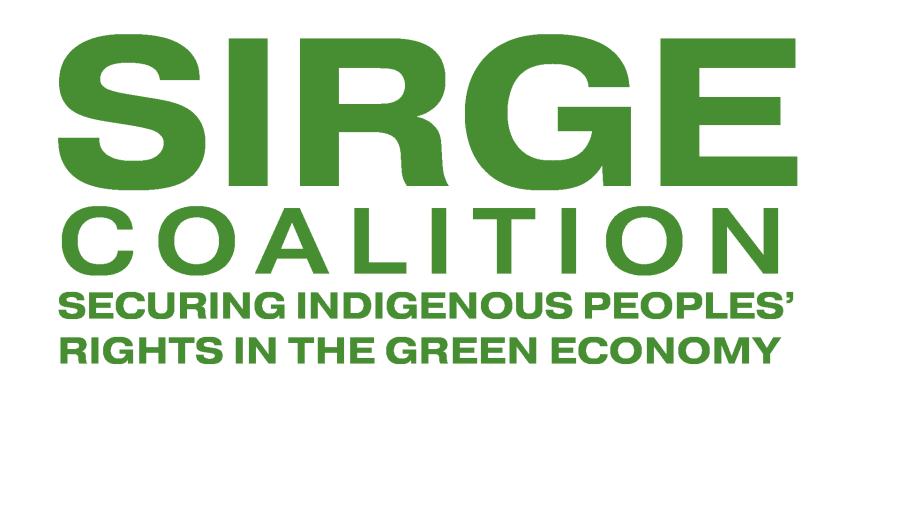This installment of Cultural Survival; Quarterly is special in number of ways. It is the first issue specifically dedicated to one of the sub groupings of the Pacific islands, to Melanesia in particular. The contributors were asked to explore variations on a theme that looms large in the region's future: development and control of ancestral homelands and seas. This framework is also directly relevant to the quests for territorial rights of Aborigines (non-Melanesians)) and Torres Strait Islanders (a Melanesian people who are Australia's other indigenous minority). Hence the decision to go with an expanded focus and the sobriquet "western Oceania" rather than to feature Melanesia alone. The intention is to coax readers into learning more about critical events and issues involving the indigenous habitants of this culturally rich and diverse part of the Pacific that seldom seems to rate headlines east of Hawaii.
Think of Melanesia today, and the images created by ethnographers and explorers, cultural landmarks of an earlier day - colorful hunting, fishing, and seafaring traditions, vast trade networks, tribal warfare - give way to more global, abstract preoccupations: sustainable development, common property management, global warming, Melanesian countries negotiating a maze of impending social and environmental crises. Yet, for mush of the rest of the world, this corner of the postwar Pacific still ends to drop off the map and out of time, its multitude of islands receding to mere "specks in the blue." The tourist's view from 30,000 feet.
The name of the game is situ, though, is development flat out, and more of it. Shades of the future were sketched vividly during a visit to a tiny island in Torres Strait.. Within the space of a week the island received a constant stream of visitors - perhaps more than any previous annual number: a Greenpeace representative who was worried that levels of local turtle and dugong (sea cow) hunting were unsustainable; a roving geographer intent on detailed mapping of local reef and sea territories (to what end no one really knew); a team of scientists from the Great Barrier Reef Marine Park Authority getting set to launch a Torres Strait Baseline (large-scale environmental monitoring) study; and an unverifiable number of crayfishermen of uncertain origins and aims. The chairman of the local island council (who might ordinarily have made some attempt to monitor these comings and goings) was in the hospital a thousand miles away, in Australia. Most visitors, in one way or another, wanted to mess with local resources. Mean-while, not that far away, on Cape York, on disputed Aboriginal land, plans are under way to build a massive spaceport. Similarly, in Solomon Islands, the deluge of expat development consultants, all peddling their wares and popping their antimalarials, is something to marvel at. As one Solomon Islander put it, "Ithink they need us more than we need them."
Park of the between island realities and our images of the Pacific comes down to a question of perception. We have to adjust to a different scale, one created by vast distances between places and peoples who have had to adapt to live together, often on small islands and within new state political entities. We also need to shift our perspective - away from European South Seas mythmaking, The articles here hopefully give new forms and a multiplicity of voices to some of those "specks in the blue."
Rediscovering Melanesia, we find epidemic malaria and "rascalism" (violent crime) on the rise in Papua New Guinea; population growth rates among the highest in the world (peaking at 3055 percent in the Solomons); an increasing gulf between remote rural communities and educated urban elites; Melanesian parochialism characteristically thriving; urban drift, giving rise to "foragers in Honiara's [the capital of the Solomons] urban jungle;" a Western diet changing the patterns of health and disease to the developed-country, noncommunicable types; wanton deforestation and alarming degradation of the coastal marine environment complemented by the predictable onslaught of expat-sponsored environmental initiatives; and in Vanuatu, perhaps more interest in personality cults than cargo cults.. Sustainable development promises much - if governments could just agree on what "sustainability" is. We encounter a landscape of Pacific discourse increasingly littered with development buzzwords (community participation!) and derivative issues (Western imports whose local applicability is questionable). We observe an emerging dialectic that pots the centralizing state against the peripheral, small-scale autonomous society (where the hinterland withers away and the capital becomes the nation), with the people and organizations victimizing nature on one side and the victims of the social order on the other.
Zeroing in on the challenge of caring for the ancestral domain is in part an effort to find a theme that cuts across the imported issues and meanings, national and social boundaries: something that resonates with local concerns. Among other things, the topic emphasizes the key interplay between control of resources and Pacific cultural identity. Unlike some more developed, US-and French-colonized islands, in Melanesia the future of the land and sea environment, of national economies, and of tribal identities really hinges on how customary land and sea owners plan to use their clan territory and on what kind of development they permit in the make-or break decade of the '90s. Indigenous people occupying the coasts and islands of western Oceania claim what are some of the Pacific's most extensive ancestral domains, where both lands and adjacent seas come under exclusive clan ownership. Setting the stage for confrontation between custom and development, the renewed capitalization in mining, logging, fishing, and plantation economies is rapidly breaking down the last vestiges of postwar rural isolation. Yet, relative to other tropical coasts, western Oceania still contains extensive and even unutilized wild land and marine resources.
The forces of tradition and change are destined to clash repeatedly on the issue of national development policies vs. Melanesian Kastom (custom ways). Kastom forms the core of resource tenure systems and culture continuity rural. The articles in this issue address this quandary from different country and community perspectives: Gegeo surveys the intricacies and long-range social implications of landowner disputes; Hyndman documents the environmental disasters of OK Tedi and Bougainville; White, Lindstrom, and Cordell tackle the important them of "custom today" - ways in which Melanesians are invoking tradition to redefine their contemporary ethnic and national identities; Baines examines the potential community benefits of translating newly found ecological concerns into village resource management networks; and Hull looks at the relationship between health and development.
We can rejoice that all Melanesian countries except New Caledonia and West Papua today are independent. However - and this is a very important reservation underscored by several authors (Baines, Clarke, Hyndman) - simply because nations of the Melanesian Pacific consist largely of indigenous groups that are now self-governing by on means implies that human rights, territorial rights, or rights of ethnic minorities are safe and secure. Many groups face severe threats and conflicts over land use and property rights, dramatically illustrated by events on Bougainville. Lal's analysis of the Fijian situation raises a host of questions about social inequality and the potential for human rights abuses within Oceania's indigenous nations. The course of events in culturally plural Fiji makes us painfully aware of the pitfalls of "traditionalizing custom," of the contradictions and political implications of uncritically advocating indigenous "rights" where only certain groups possess them or where anything "indigenous" becomes a metaphor for "good" and "correct."
Unfortunately, concern for protecting the Pacific's tropical ecosystems has not been matched by appreciation of customary land and marine tenure systems. There is much evidence to suggest that these proprietary systems hold the key to environmental sustainability. However, unless they make extraordinary efforts to learn the nuances of local tenure systems, the conservationists now descending on the tropical Pacific en masse have the potential to undermine these systems. Even socially sophisticated schemes that are far from being strictly preservationist can become a pathway to marginalizing and dispossessing local communities. It is crucial for authorities to develop methods for consulting with local residents, and to use approaches that will work to empower custom owners as environmental managers.
Finally, the timing and orientation of this issue coincides with coastal resource management program Cultural Survival is developing in western Oceania. Initial project areas will include communities in Australia and Melanesia, and the range of articles presented here - e.g., the opening sequence on Australia - Is indicative of the complexity of territorial rights issues affecting the local groups with whom we will work. Plans to establish a Cultural Survival presence in the Pacific mark our first venture into the region to assist rural communities in sustaining their coastal homelands and marine resources. Like Cultural Survival's programs providing assistance to tropical forest peoples in Latin America, our Pacific program will integrate pressing environmental management needs with measures to ensure local control of ancestral domains. In seeking to expand our work of Pacific island and coastal settings, we plan to proceed mush as we have in the past: cultivating close working relationships with indigenous groups, helping to link them through innovative resource management networks, encouraging governments to initiate needed reforms, and through our publications, serving to internationalize local human rights issues. Cultural Survival's strategy - explicitly connecting the issues of indigenous territorial rights, economic needs, and habitat protection - can benefit reef and lagoon systems as well as rain forests. In any case, saving tropical resources is impossible without empowering local residents and indigenous owners, regardless of the type of environment they inhabit. We believe this principle will prove valid in tropical maritime settings as we seek to extend our programs to indigenous communities in western Oceania.
Article copyright Cultural Survival, Inc.



